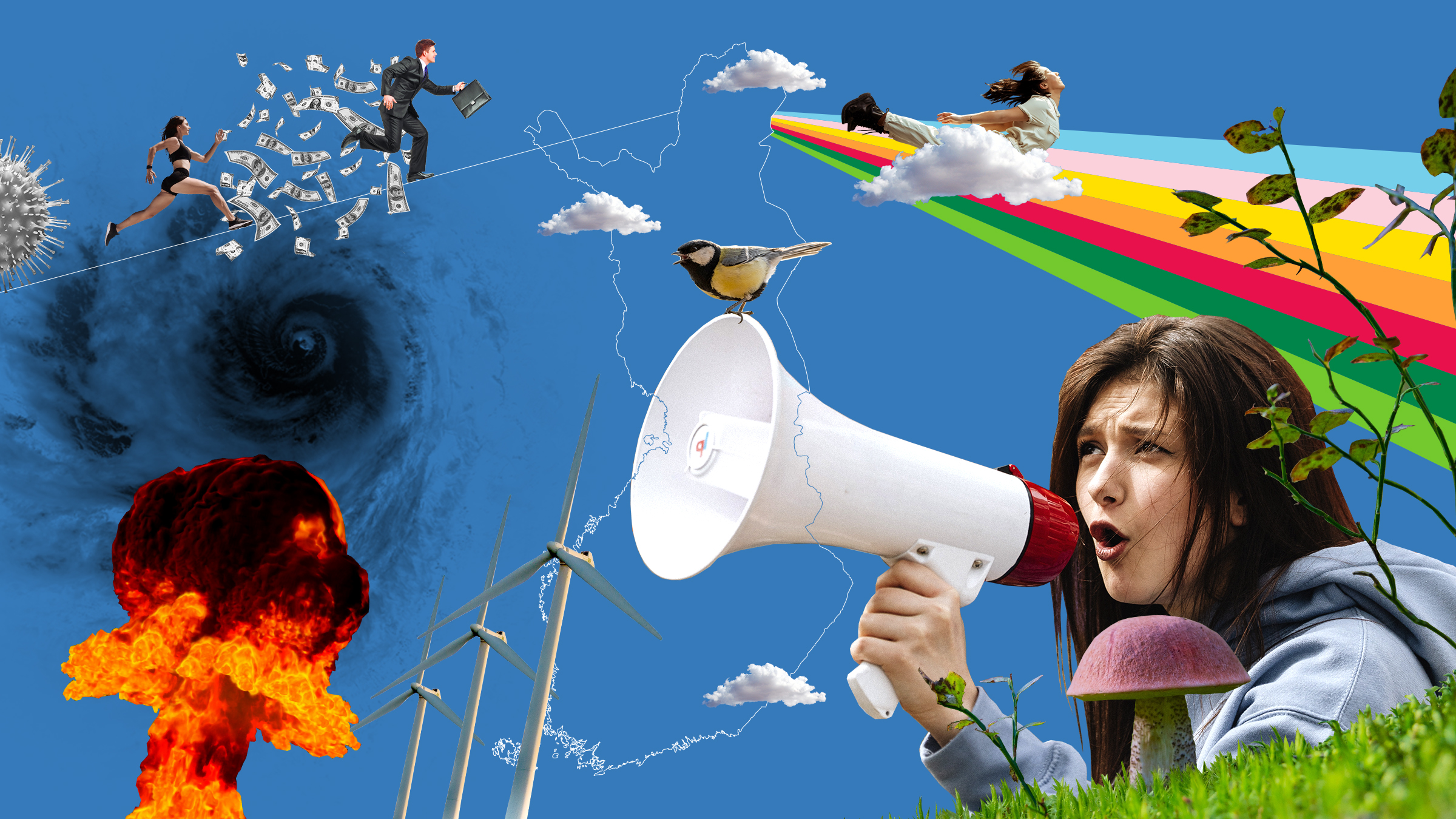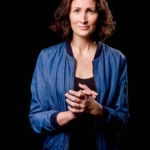The Futures Barometer survey commissioned by Sitra paints a hopeful picture of Finns’ faith in the future: nearly everyone (87%) is still interested in the future even in the midst of crises. In the survey, the future refers to things that will happen in the next 10–20 years. Although there is much talk of youth malaise, the Futures Barometer identifies young people as a distinct group with a strong belief in the future. Their interest in the future (91%) is even more firm than in the 2019 and 2021 barometers.
Russia’s war of aggression against Ukraine, inflation, the energy crisis and the Covid-19 pandemic have not broken people’s belief in the potential to influence the future. More than 80% of Finns think that it is possible to do so.
“Finns’ strong faith in the future was surprising. They clearly have resilience in crises and confidence in society. A strong belief in the future is an asset to Finnish society,” says Jenna Lähdemäki-Pekkinen, Foresight specialist at Sitra.
Russia’s war of aggression against Ukraine has darkened attitudes
Although Finns’ belief in the future is robust, the proportion of people who are enthusiastic about it has declined. One in five of the barometer respondents now say that they are looking forward to the future and see a lot of opportunities in it, compared to one in four respondents two years ago. Similarly, the number of respondents who are fearful of the future has slightly increased (now 15%, up from 13%). Young people aged between 15 and 24 are the most enthusiastic about the future, with 34% of them saying that they are enthusiastically looking forward to the future. Men (26%) are clearly more enthusiastic about the future than women (15%). More than half (52%) of Finns sometimes see the future as frightening and sometimes look forward to it.
Russia’s invasion of Ukraine has had a strong impact on Finns’ views of the future, more so than Covid-19. Of the respondents, 36% consider the war to have affected their views very much or a lot and 43% to some extent. The war has affected women’s views more than those of men, and among different age groups the biggest impact has been on people aged 65 and over.
A desire to preserve the welfare state – disagreement on environmental issues
When Finns were asked what they would like to see happen in 10 years’ time, the number one wish was to preserve the welfare state. Balancing public finances and curbing debt, maintaining a high level of national security and improving the well-being of children and young people were also among the top priorities. According to the Futures Barometer, the same themes will influence Finns’ voting decisions in the spring elections.
By contrast, environmental goals such as curbing climate warming and stopping the loss of biodiversity have become less important when it comes to Finns’ hopes for the future. Young people’s priorities in terms of their future and issues affecting their voting decisions differ from the other age groups: the top three consist of keeping the warming of the climate under 1.5°C, promoting the well-being of children and young people and the preserving the welfare state.
The Futures Barometer also asked respondents how closely the megatrends affecting the future (the erosion of nature’s carrying capacity, growing well-being challenges, the intensifying battle for democracy, escalating competition for digital power and cracking economic foundations) match with their own perceptions. The different megatrends are fairly well aligned with people’s perceptions, but there was also some divergence between different groups. Well over half (56%) of the respondents felt that the megatrend on the erosion of nature’s carrying capacity matches their own view, whereas a third (31%) felt that the megatrend did not. The question divided respondents especially according to party affiliation and age. Among young people, 64% said that the megatrend matches well with their views. They also felt most strongly of all the age groups that the erosion of nature’s carrying capacity, like the other megatrends, can be influenced.
“During this spring of elections, we must remember that we cannot put the future on hols, and the developments described by the megatrends cannot be ignored. For example, the ecological sustainability crisis will not wait for us to first solve the burning issues facing society. Finland needs politicy-makers to take a strategic approach that transcends government terms. It is also important that in election debates parties and candidates tell Finns what kind of a future they want for Finland,” says Sanna Rekola, Foresight specialist at Sitra.




